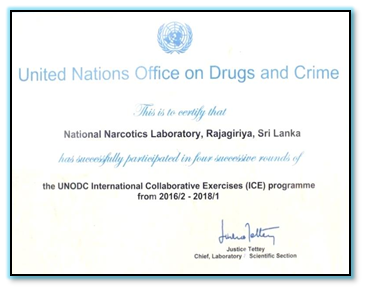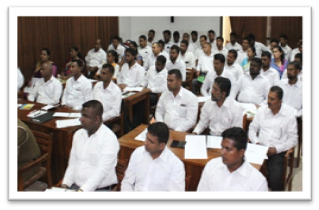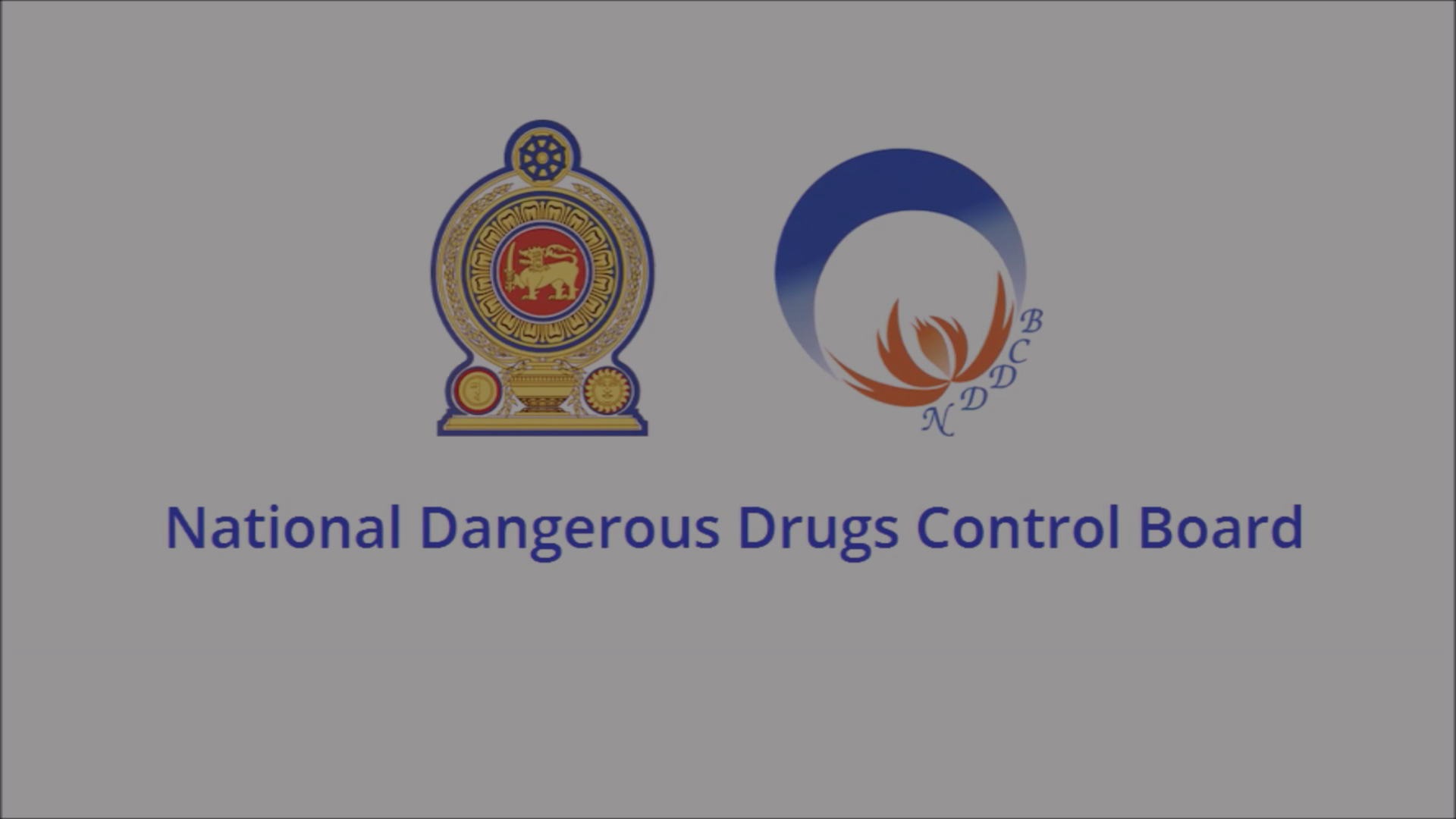Our Core Values
Service to the Nation
Reliability and professionalism
Honesty and integrity
Responsibility and accountability
passion for Innovation
Scientific support for drug law enforcement operations and investigations
Scientific evidence based strategic interventions
Scientific intelligence services
Promote the Scientific evidence based policy and decision making
Promote scientific based initiatives, standards and best practices
QUALITY OF OUR LABORATORY SERVICES
Quality Policy of the NNL
Providing high quality laboratory and scientific services in order to assure that the requirement of the customers and the relevant statutory and regulatory Authorities are met and their expectation are exceeded through the application of effective QMS.
INTERNATIONAL STANDARDS

The NNL participates for the International Quality Assurance Programme conducted by the United Nations Office on Drugs and Crime (UNODC) and accuracy and the quality of the test results of the NNL are being regularly monitored on a global scale
LABORATORY AND SCIENTIFIC SERVICES
The staff of the NNL is committed to establish an integrated, multi-disciplinary, balanced and coordinated scientific evidence based strategies for effective implementation of the National Policy on prevention and control of Drug abuse. The main services of the NNL are as follows
"We are committed to establish an integrated, multi-disciplinary, balanced and coordinated scientific evidence based strategies for effective implementation of the National Policy on prevention and control of Drug abuse."
Scientific support to effective drug law enforcement
- Suspected drug analysis for investigation, operational and intelligence purposes- Provision of drug detection test kits for field identification Scientific consultancy services
- Capacity building on identification of emerging drugs and illicit drug market trends
- Counter measures against Internet and Social media drug sale and Postal/Courier drug trafficking
Scientific support for regulatory purposes to prevent diversion of drugs/substances
- Identification and analysis of Pharmaceutical drugs with high abuse potential
- Screening of Dietary Supplements for performance enhancing drugs in Sports prohibited by World Anti-Doping Agency (WADA)
- Analysis of products containing alcohol and tobacco
Analysis of precursor chemicals
Scientific evidence based Drug prevention Strategies
- Scientific training programmes on science behind the myths and realities of drug abuse and skill development for preventing drug abuse among school children
-Promote scientific evidence based best practises in school setting, the Universities, work places and prisons
- Scientific consultancy for the development, implement, monitor and evaluate drug prevention strategies for schools, workplaces
Scientific evidence based treatment, rehabilitation & reintegration
strategies
- Analysis of biological specimen such as urine for the presence of metabolites of controlled/ prohibited drugs therein for the following purposes;
- Identification and assessment of drug dependent persons under treatment process as per the order of the Court and requirements of the Drug Dependent Persons (Treatment and Rehabilitation) Act, No. 54 of 2007.
- Diagnostic purposes and prescribing medical treatment for patients in Private and Government Hospitals
- Identification of the cause of intoxication of inmates in treatment and rehabilitation centres and in Prisons and to identify their abstinence from drug abuse
- Issue certificates of being “drug free” for pre-employment and foreign educational “screening” purposes
- Improve the efficiency and the productivity in the workplaces through work place drug testing
- Capacity building of medical and counselling practitioners, in the area of treatment and rehabilitation of drug dependent persons
- Instructions for the submission of samples of biological specimen (Urine) for analysis
Capacity building programmes
Capacity building programmes are being organized by the NNL in order to impart knowledge on the following subjects for Government and Non- Government agencies involved in prevention and control of drug abuse including drug law enforcement agencies, health authorities, prison authorities, education sector, work places, laboratory personnel etc.
Scientific training programmes
Scientific training programmes consists of lectures on drugs of abuse, including narcotics, psychotropic substances and precursors and discussion of legal aspects of drug related offences and their implications as applicable. Moreover, resource persons from the Attorney General’s Department share their expertise on legislations pertaining to drugs, evidence collection, case preparation and presentation to Courts.
 The CBT which is an e-Learning program is specially programmed to impart knowledge on drug related materials through, videos attractive pictures and voice recordings in both English and Sinhala medium. This program has been established by UNODC in collaboration with National Dangerous Drugs Control Board (NNDCB).
The CBT which is an e-Learning program is specially programmed to impart knowledge on drug related materials through, videos attractive pictures and voice recordings in both English and Sinhala medium. This program has been established by UNODC in collaboration with National Dangerous Drugs Control Board (NNDCB).
Scientific Research
Conducting scientific research in drug demand and supply control is one of the main functions of the NNL which is of great importance to find effective solutions to various aspects of the drug problem. The NNL scientists have research publications to their credit in local and international scientific journals, on the basis of their scientific research and analysis.






